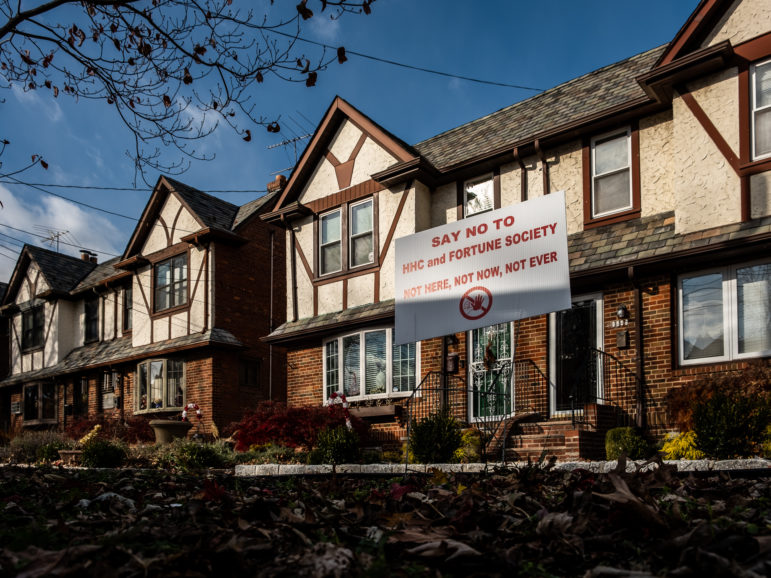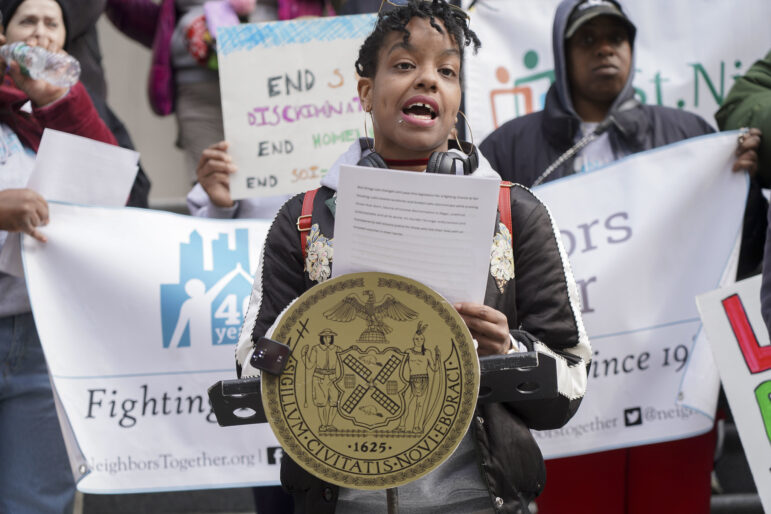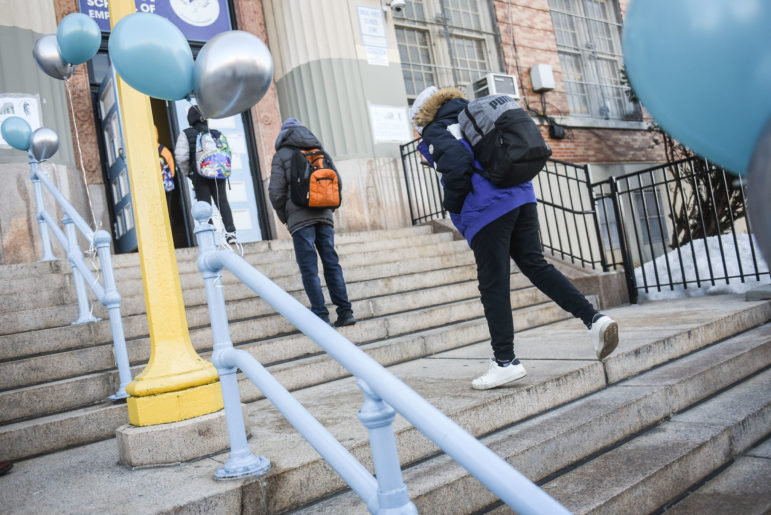When the Department of Probation announced plans in January to close its Alternative to Detention (ATD) schools, juvenile justice advocates were irate. How, they asked, could the city axe a 30-year-old program without creating a replacement?
ATD was designed to give judges a way to keep tabs on youth facing charges in Family Court without locking them up. But the schools were also plagued with problems. Citing budget woes and safety concerns, Probation Commissioner Martin Horn opted to shut them down [see “Saying Goodbye to Last Chance High,” 2/21/06].
Horn defended his decision at a City Council budget hearing last week. “I know there has been some concern about our decision to close this program,” he said. “I want to assure you that this was a difficult decision and had we thought it was working, we wouldn’t have closed it.”
He also described an “interagency effort” to craft a better program, one that would “allow the children to remain in the community and remain in their schools.” When pressed for a timeline, he said it would be in place by June.
John Feinblatt, the mayor’s criminal justice coordinator, is spearheading the effort. “The main challenge for the Family Court in juvenile delinquency cases is to make rational decisions about whether detention is appropriate and which services are needed most,” he wrote in a statement. “Up until now, we haven’t entirely lived up to that challenge. [Now] we are well on our way to accomplishing that goal.”
Mishi Faruqee, director of the Juvenile Justice Project at the Correctional Association of New York, a research and policy group, said she is encouraged by these comments, but wants to know more. “I still don’t feel like we have any details,” she said. “Hopefully the city is working on a continuum of services and not just one program.” Rather than reinvent the wheel, she added, the city should look to local nonprofits—including the Vera Institute of Justice, the Center for Community Alternatives, Friends of Island Academy, the DOME Project, and the Center for Alternative Sentencing and Employment Services (CASES)—that already work with sentenced teens. With proper funding, she said, they could also help those awaiting trial.
That’s the premise behind “Community Connections,” a pilot project proposed by the New York Juvenile Justice Coalition, an alliance of advocacy groups organized by the Correctional Association. Unlike ATD, Community Connections would operate after school, offering intensive case management, home visits, and links to outside activities such as basketball and art.
Though the plan envisions a citywide expansion, its initial pilot would be based at BronxConnect, a program run by the faith-based Urban Youth Alliance International. BronxConnect already serves youth referred by Criminal, State Supreme and Family Court, with an impressive success rate: Between 2001 and 2004, 86 percent of its clients completed the one-year mentoring program without being re-arrested.
On a recent Thursday evening, the BronxConnect office was bustling. After a dinner of spaghetti and meatballs, roughly 25 teens sat with their mentors at folding tables, slapping down dominos or playing hearts. Meanwhile their parents met in a back room with a BronxConnect staffer to talk about challenges at home.
“A lot of parents feel like they and their kids are getting beat up by the system,” explained program founder Ruben Austria. “They just need support.” At the same time, he said, his staff is realistic: “We have a saying over here: If you don’t discipline your children, the courts will.”
BronxConnect started in 2001, when Austria, then running a mentoring program for at-risk youth, convinced a judge to release a 13-year-old charged with theft and possession of a weapon, and assign him to BronxConnect instead. Thanks to a regimen of structured activities like tutoring and aikido, the teen stayed out of trouble throughout his year-long probation and was admitted to a specialized high school for graphic arts.
Now BronxConnect is in high demand, fielding calls from judges, lawyers and social workers. But its capacity is maxed out, with two caseworkers sharing roughly 30 cases. Austria is actively seeking funding to serve more kids.
That’s not the only challenge. Despite the fun and games, the program is mandatory and some teens seem to resent the intrusion on their social lives. “Right now, I would have been hanging out with the fellas,” said Frank, a slight 16-year-old with an iPod cord slung around his neck. Still, he said, it’s better than the alternative. Given his crime, armed robbery, he could easily have landed in a detention facility. “I don’t want to get locked up,” he said.
By eerie coincidence, one of those facilities, the Horizon Juvenile Center, is visible from a window in the BronxConnect office. “We try to help them forget,” said Austria. “But it’s a sobering reminder.”
Austria had a sobering reminder of his own last week, in the form of a phone call. Despite letters of support from the Department of Probation, the Department of Education, Bronx Family Court and others, his request for funding from the state was just turned down.
Name has been changed.








